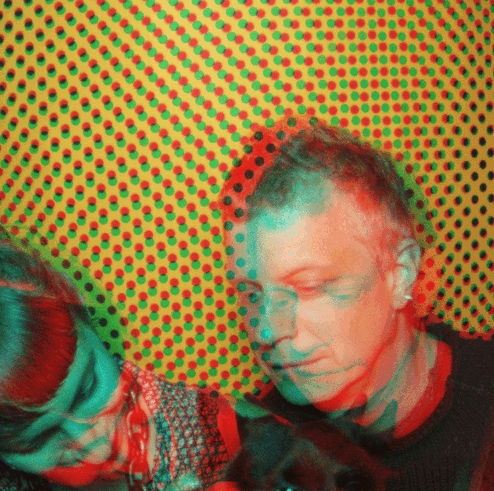Can you start by telling us a little more about your company and its unique approach to theatre making, particularly as it combines the body, dance, and puppetry?
The foundation of our company is in puppetry, which stemmed from an early childhood interest that Erik had in the medium. As we began to work together using this form, we immediately saw opportunities to expand upon the form and became excited to see how the performer's body in particular could be an extension of—or a collaborator with—the puppet. There is the familiar scene of the obscured puppeteer in traditional puppetry forms, or that of the performer that is seen but in the service of the puppet—we wondered how we could push and pull at the edges of that. Movement and dance were introduced to Jessica at a pivotal age by her grandmother, and it has been seeping into her consciousness ever since—so it is no wonder that we have begun this inquiry with the body and the puppet.
Where did the name Phantom Limb come from?
The idea of the phantom limb in the medical field seemed a perfect metaphor for puppetry—something that is not attached to you though you can feel it as though it were. We like to think of the puppet as an extension of your body.
How do you feel you’ve evolved over the years?
The collaboration between us has deepened and made room for other intelligent, deeply creative voices. This deepening and expanding of our creative team has given us space to get down to what is really important to us—innovation within our medium, and grappling with the topic of being a human in a world rapidly changing from environmental imbalance. Our first piece together was Erik's longtime closeted dreamchild, and Jessica supported his vision. Jessica’s vision was always more focused on the big picture issues. From a small child, she wanted to make a difference in the community, and this was almost always environmentally focused. We think the two of us saw a way to combine our talents and use them to try to create change rather than just entertainment—while hopefully also providing entertainment.
As for your latest work—12 Angry Animals—can you tell us about the origins of the project, and your vision for the piece?
As with any project, we honestly cannot trace the origins of the project. For some reason, whenever that question comes up for any given project, we can't isolate the moment where we landed on the concept for a piece. Maybe a napkin sketch on an airplane or a staging idea. All we know is that we wanted to step into the use of language for this one, which is completely new territory for us. There is a book by a photographer named Tim Flach who takes endangered animals out of context for his photos—so rather than their habitat, they are almost always shot in what feels like a studio setting. There is this moment wherein we are able to relate to the animal in a different way—when it is in a human context. If you can place an animal in a context that we understand or relate to rather than thinking of them in some obscure unseen environment in the desert or the jungle, perhaps there can be a moment of more concentrated empathy, or even to become indignant on their behalf. We consider this piece to be an epilogue for our Environmental Trilogy. The trilogy never really addressed or gave voice to animals. As we began work on this particular piece, all of the articles about mass extinctions started to emerge and we knew that we were on the right track, the right place and time to start getting people more engaged with the actual harm that we are doing. The best we can hope for in this piece is that audience walks away asking themselves questions. What if they were the human on trial? What if they were the creature passing judgment on them? How do you balance the beauty and destruction that we seem to be able to dole out in equal measure?
How has your experience working at Tisch Drama been so far? What have our students brought to the conversation?
We've been having an inspiring and energizing time. The students are fearless, generous, hardworking, and focused—which is exactly what we look for when we enter into collaborations with other artists and performers in our work.
